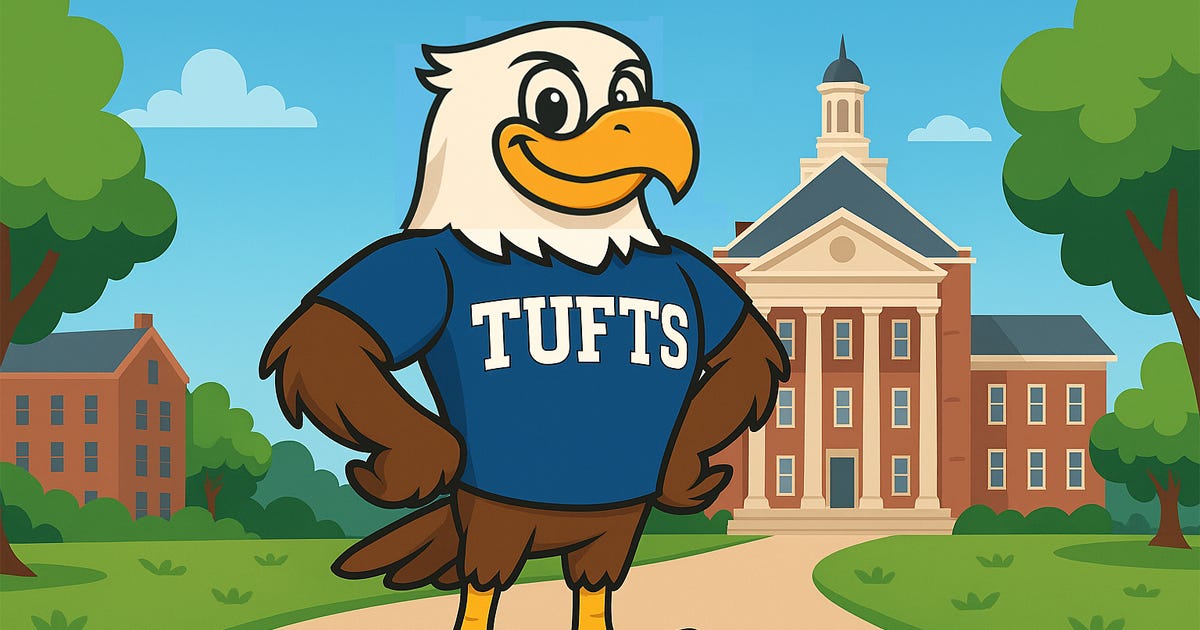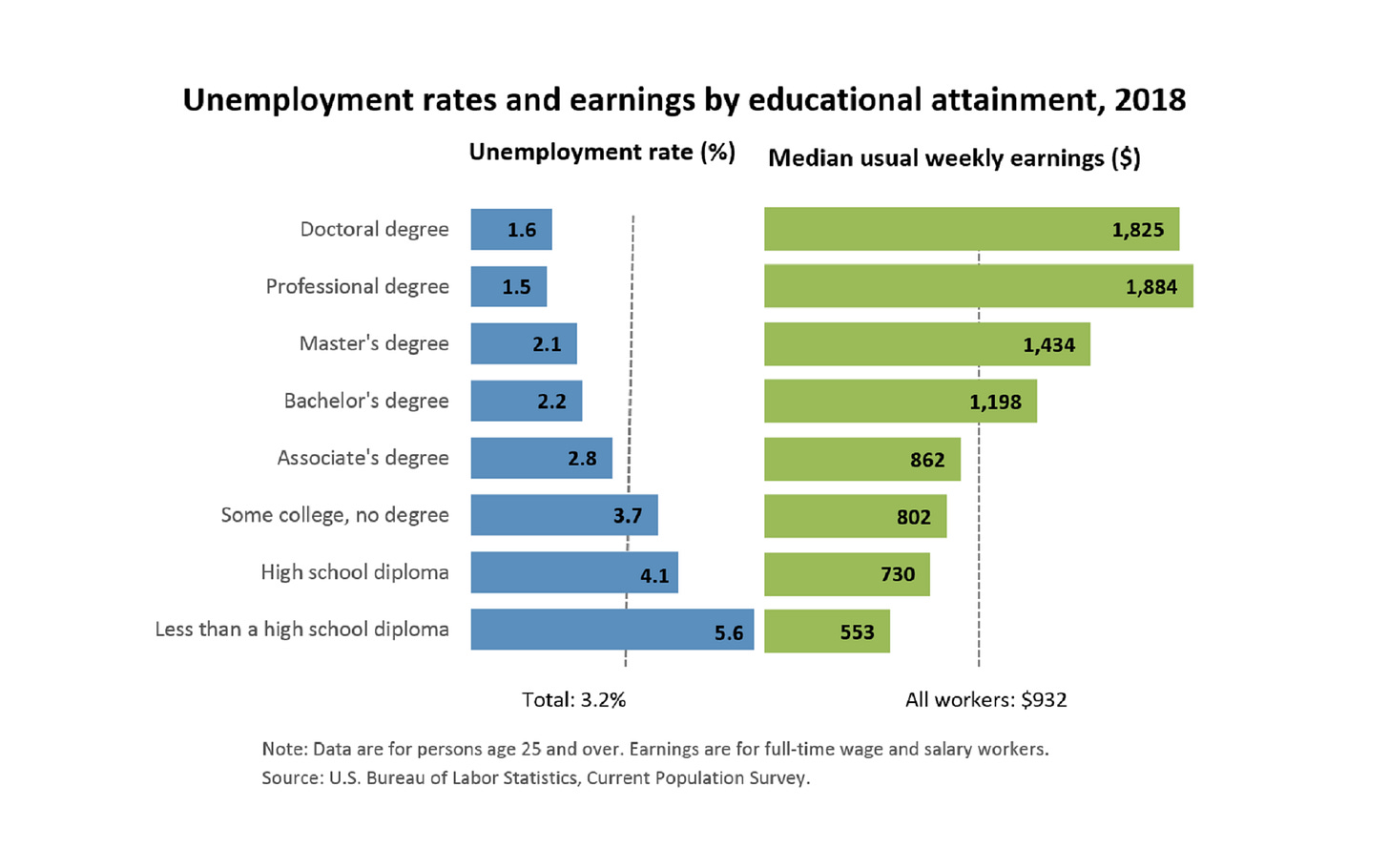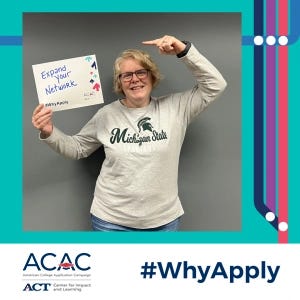#WhyApply? 🎓🦅
Is your process reflexive or reflective?
Many high schoolers see college as the next logical step in their lives without having a clear sense of what they want to get out of the higher education experience. Should we be asking ourselves why before we ask where? But first the news…
COLLEGE NEWS
Income influences educational outcomes: The latest High School Benchmarks report from National Student Clearinghouse Research Center reveals that students graduating from high-poverty high schools experience lower enrollment, first-year persistence, and graduation rates than peers from low-poverty high schools. In other words, the poor get poorer…
College convergence in Charlotte: Elon University with Queens University of Charlotte announced an intent to merge, in which Elon would operate Queens in partnership with existing and legacy leaders starting in fall of 2026. Is this the future of higher ed?
Peace and light for free: Tufts University announced that U.S. undergraduate students whose families make less than $150,000 a year will attend tuition-free, beginning in the fall of 2026. There’s just one catch: you have to get into Tufts ;)
I’m moderating an exciting free webinar this month: Scholarships & Majors: How College Major Clarity Unlocks More College Aid. Join us on September 30 at 7:30pm EDT to learn practical tips from scholarship strategist Dave Peterson and master career coach Lisa Marker-Robbins PLUS one real scholarship example for each of the six most popular majors! Register here.
BIG IDEA
In the 2023-2024 admissions cycle, roughly 1.4 million applicants submitted applications using the Common App. This impressive number of higher ed aspirants doesn’t even include those who applied to four- and two-year schools in other ways. There’s no doubt that a huge percentage of young adults see college as the most obvious or attractive next step towards their life goals.
The main question every applicant should ask is, “Why apply?”
Tons of reasons are trotted out to explain why students should pursue higher education, the most compelling of which is usually economic: on average, college graduates make more money than high school graduates:
But job training hardly explains the passion teens–and, by proxy, their parents–pour into every aspect of college admissions or the pride alums feel for their former schools. Reasons to attend college usually transcend mere economic incentives. From all the specific motivations, at least four major trends emerge:
1. CREDENTIAL
This is most clearly career-centered reason to apply to college–to earn a degree or certificate that opens doors to career opportunities or higher degrees. For some applicants, the name of the school carries more weight than the degree.
2. EDUCATION
Believe it or not, some students apply to college because they want to learn more or at least learn what they want to learn more about. This motivation has more to do with the academic process than the credential at the end.
3. EXPERIENCE
Many applicants prioritize culture, community, sports teams, and other accoutrements of college life over what they’ll be studying. This reason motivates far too many high schoolers, who are undoubtedly transfixed by the premise of college as “the best four (or more) years” of their lives.
4. NETWORK
The power of certain alumni or fraternity/sorority networks to facilitate future success cannot be overstated. Students with strong regional, national, or global ambitions seek strong personal connections that will last a lifetime.
Ultimately, every applicant applies for different conscious or unconscious reasons, but clarity at the outset can help improve fit and future success. Any time is the perfect time for a current or future college applicant to think about their true motivations, but September 19–WhyApply Day– is particularly auspicious.
#WhyApply (to college) Day is sponsored by the American College Application Campaign, an initiative of ACT’s Center for Impact and Learning. On Friday, September 19, 2025, ACAC encourages college students and graduates to wear your college gear and share why students should apply to college and/or why they applied to college on their favorite social media platforms, using the hashtag #WhyApply.
What makes the concept of WhyApply Day powerful? Everyone has a different reason to apply to college, which should inform how, when, and to where to apply. The more you understand your personal motivations, the more likely you’ll land at the right school and accomplish your goals.
NAME THAT SCHOOL
Think you know a lot about colleges? Try to guess this institution of higher education. (Find the answer at the end of the newsletter.)
Founded in 1913 by the School Sisters of Notre Dame
Home to one of the oldest fashion design programs in the country as well as a unique historic fashion archive with garments dating back to the 1700s
Known for strong programs in occupational therapy, dietetics, biology, and counseling and a strong focus on serving first-generation college students and underrepresented groups.
One of the only schools in its state to be to be designated by the federal government as a Hispanic-Serving Institution
Single-gendered at the undergraduate level, but its graduate programs are coeducational
APPLICATION ACTION STEPS
🎓 Explore the 15 Safest Colleges in America.
🎓 Learn about the schools that allow pets to live in dorms.
🎓 Consider how to use extracurriculars to really stand out.
🎓 Understand what intentionality on the road to college means.
HOTLINE
Do you have any burning questions to ask or want to share an issue, article, or resource our readers should know about? Dial up the College Eagle hotline through this easy form. We appreciate you!
NAME THAT SCHOOL ANSWER
Kudos to the all-girls Mount Mary University and all the other Wisconsin schools determined to keep supporting underrepresented students despite federal funding cuts. Go Blue Angels!






